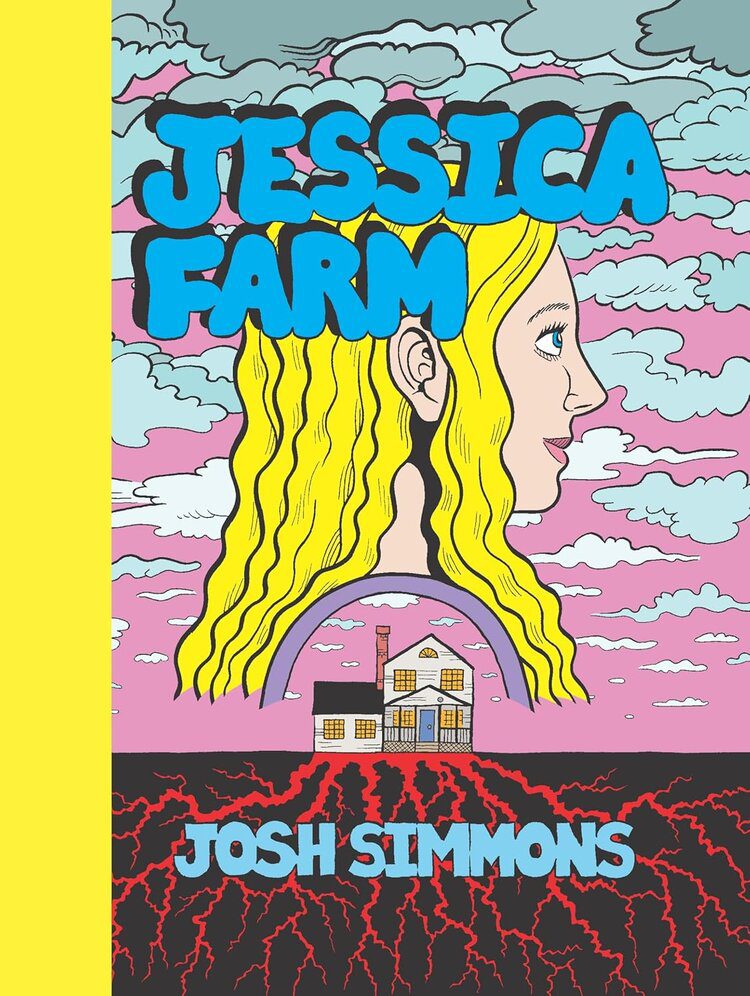
Jessica Farm, by Josh Simmons (Fantagraphics Books), is an unconventional and sprawling journey through a landscape where nightmare and absurdity collide. Conceived over 24 years, with Simmons crafting one page a month, this graphic novel (that collects two volumes) shows his growth as an artist while delivering a narrative that is strung together by the loosest thread.
Buy Jessica FarmHere’s the setup: It’s Christmas, and Jessica, our teenage protagonist, heads downstairs, eager to open her presents. But things are not as they seem. An innocent holiday morning spirals into a surreal odyssey across her family’s farm, a place brimming with grotesque and downright dangerous creatures (e.g., Crangle Shitters, Grokk Flockers)—the kind you might find in vaguely Lynchian, even Lovecraftian nightmares. Simmons taps into Alice-in-Wonderland whimsy with a twisted edge, mixing in horror and absurdist humor that keeps us both grinning and grimacing.
Jessica, forever on the cusp of danger and confusion, navigates an unpredictable, maze-like house where every room, hallway, and stairwell plunge her deeper into a rabbit hole of the bizarre. From tentacled monsters to unsettling family exchanges, Jessica Farm strides a jagged line between dark comedy and psychological horror. Themes of confinement and dread haunt the novel. Along the way, Jessica encounters a mad cast, including a talking monkey, a toy-sized jazz band, and a shock-haired, incidental character, Mr. Sugarcock, who morphs into a strange sidekick.
Simmons’ rough, expressive line-work lends itself to this deranged fairy tale. His cartoonish characters feel as if they’ve escaped from an underground comic, turning a childlike fantasy world into a blood-spattered fever dream, complete with graphic violence and frank, often funny, sexual interludes. An edgy, transgressive vibe runs through the story, as if the novel teeters on its own sanity. It’s a wild ride—one that invites us to hold on tight (or, maybe, let go) as it unfolds, for better or worse.
Taking cues from early web comics, Simmons lets his muse drive, hewing to an arc of sorts but playing within an ever-shifting sandbox. He lets the story develop as unpredictably as his impulses dictate. (In the Afterword, he addresses this choice.) As a result, Jessica Farm is less like a conventional story and more of a deranged diary—a nesting doll of nightmares, with just enough narrative thread to keep us pressing forward (or backward, or sideways).
It won’t be everyone’s bag. Traditionalists might find the lack of structure off-putting; but for those who thrive on chaos and embrace its eccentricity, Jessica Farm is a daft, unfiltered ride worth taking. And Simmons aims to complete the journey by 2050. It’s an unsettling experience wrapped in a beautifully bound package by the estimable folks at Fantagraphics Books.
I recommend it.